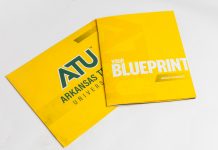As you’re applying for graduate school, you may be asked to write a Statement of Purpose.
If you’re not sure what this is or where to even begin, don’t worry. You’re not alone. It can be scary to see that request on a website or in an email with no further instructions. Keep reading for some tips on how to write a good Statement of Purpose.
Getting Started
The first step is to do a little research and see if you can find more information from the program you’re interested in. Do they provide any further instructions like possible topics or the desired length?
If so, make sure you follow the directions exactly. If you are asked for 2 pages, make sure your paper is 2 pages, not 3 or 1.5. If the specific program does not give you guidance, here are some ideas to consider.
The Goal of the Statement of Purpose
The statement of purpose can be interpreted as: “Why should I be considered for your graduate degree?”
Articulate who you are. Be honest and be yourself! Don’t say what you think the program director wants to hear if it’s not who you are. The program director wants to get to know the real you.
General Areas to Address in your Statement
- What are the interests you have that relate to this program?
- How does your work ethic prepare you for this program?
- What aspects are you most excited about in this program?
Specific Areas to Address in your Statement:
How you intend to use this degree
- Are you hoping to advance in the field?
- Become qualified to work with a particular group?
- Take on a new challenge?
- Fulfill a lifelong dream?
What to Leave Out
You only have so much space in your paper, so try to avoid including things that don’t relate. The award you got in high school or the employee honor you once received may not be relevant, so it might be best to take those out if you’re tight on space.
Advice from Dr. Wilkins
For more tips, watch this brief video from Dr. Melinda Wilkins. She is the program director in the Health Informatics program at Arkansas Tech University and shares more about what she’s looking for in the Statement of Purpose.






